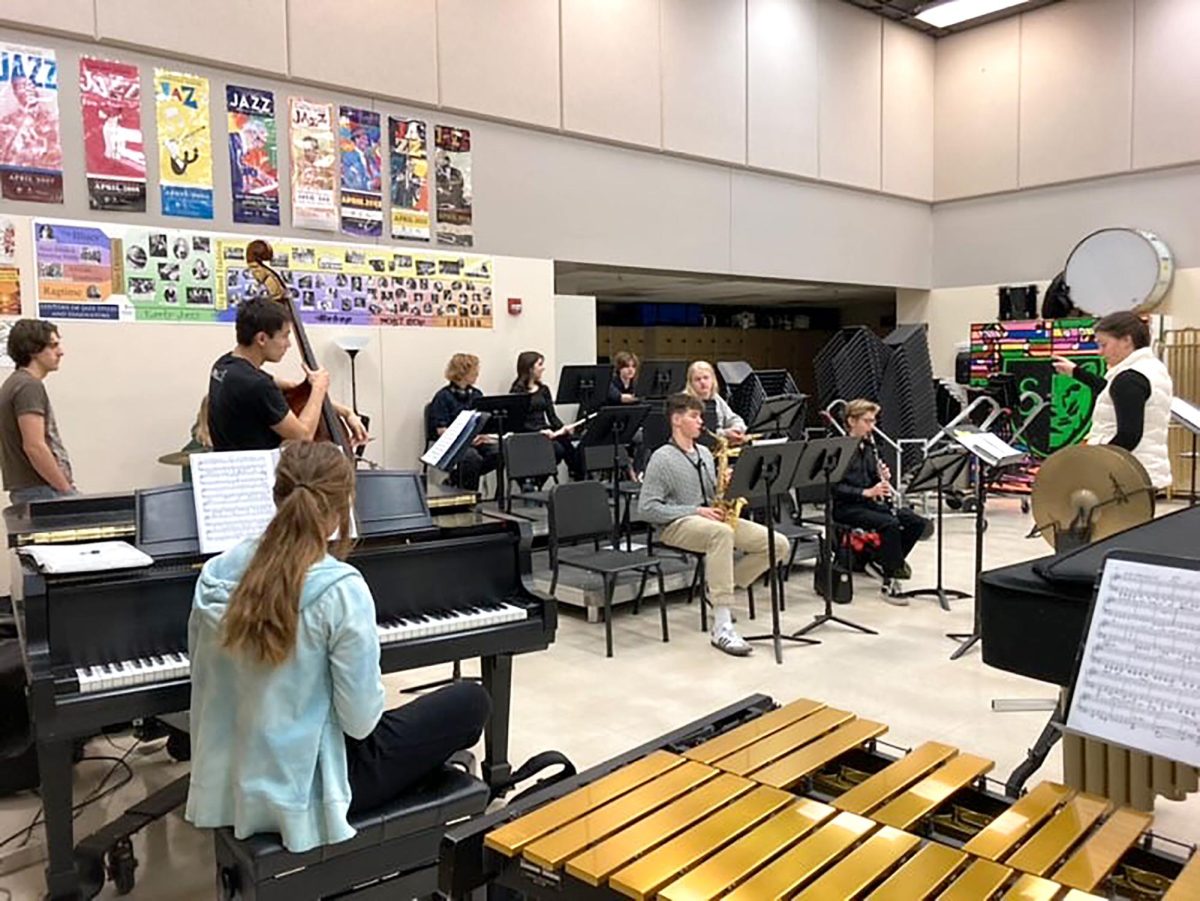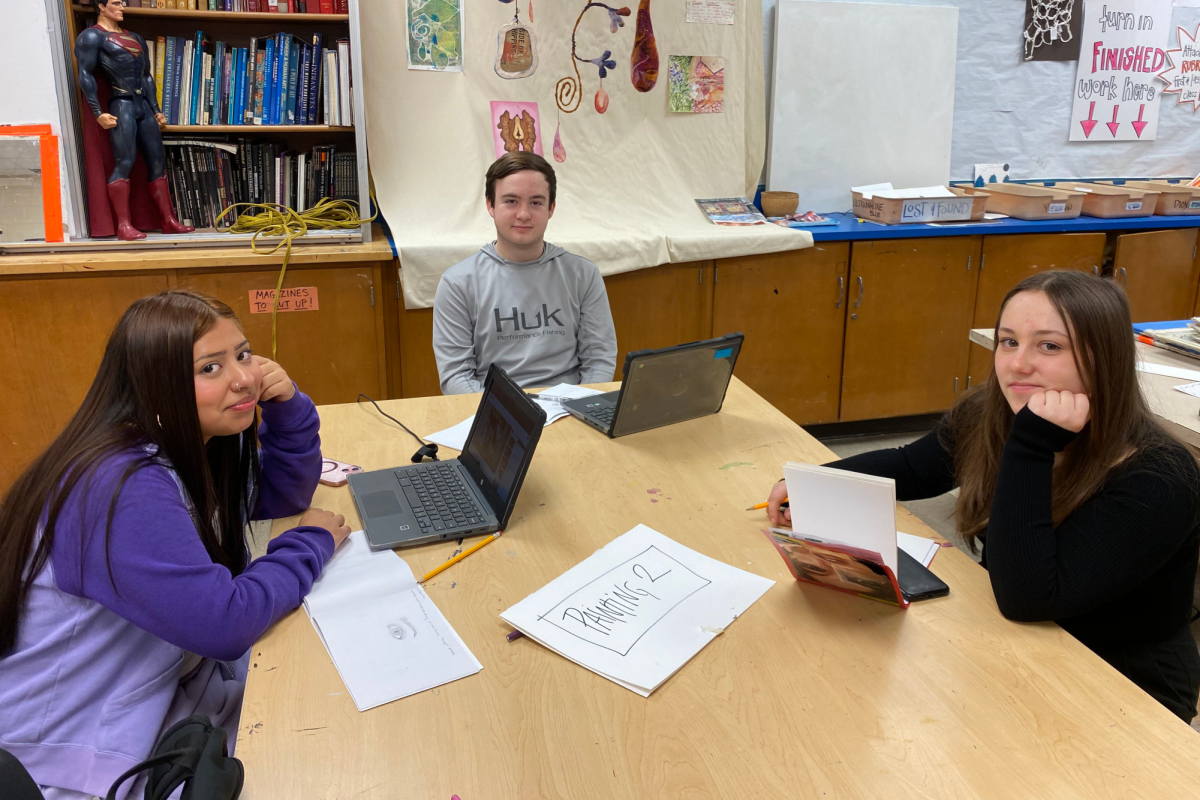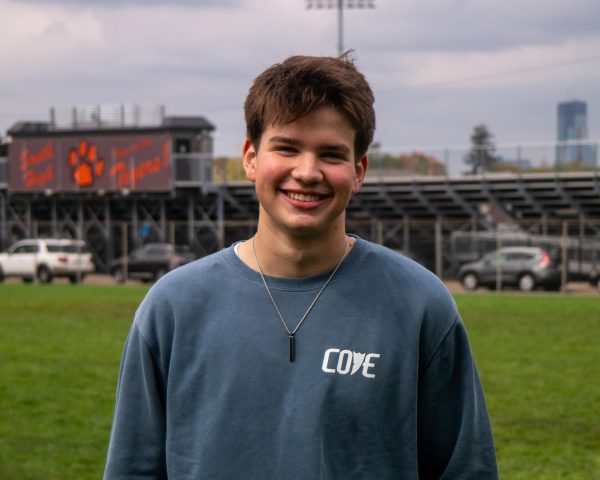Over the past 3 years, the music program at South has lost a teacher, nine classes, and nearly one-hundred of students. And there’s no sign that this downward trend for the program will reverse. Less students means less funding, and with less funding the program draws students less. Choir teacher Lauri Meyers, believes that the choir program will soon reach the meager size of 7 people that it was when I started at South in 2005.
One major cause for the program shrinking is the Comprehensive District Design (CDD), which completely changed the map dictating where students go to school. This eliminated our primary feeder school, Sanford, and replaced it with just Andersen as our primary feeder. Sanford has an older and more experienced band program than its replacement, Andersen, because Andersen only became a middle school in recent years. The shrinking feeder pool has also caused the number of students at South to drop suddenly. Since school funding is directly related to enrollment, this change has directly caused a substantial loss of funding for South. In order to keep necessities, South has had to make cuts to the arts.
The enrollment in jazz, band, choir and orchestra has dropped drastically because of budget cuts. Potentially the biggest reason for this drop is that South changed from a 7 period day to 6. Jazz, band, and orchestra director Sophia Butler commented, “Because of all the wonderful electives offered at South, combined with the shorter day, a lot of people have had to drop music to fit in other electives.”
Starting this year, the choir program has changed from four classes to just one. The only class remaining is advanced choir. For many choir students, the lower levels of choir were a convenient entry level opportunity to get better at singing. Current choir president Neela Hammer shares her experience from Treble Choir 2 years ago. “We had a pretty large group of girls and nonbinary identifying people and it just felt like such a safe and supporting place, and I’m really sad that future generations of South students won’t be able to have that experience.”
The seniors this year were online as freshmen, a lot of students decided to just drop band or orchestra when they were online because it didn’t have the same community and rigor as when it was in person. Because of the reduced connection, many people who had previously enjoyed various music programs decided to drop out in favor of other electives that were more smoothly translated to online learning formats.
Butler, who previously only had the role of orchestra director, had to take on the role of band on top of her previous responsibilities in order to help keep the music program afloat. She’s had limited experience teaching band, which has caused a lot of extra work for her to sufficiently help her students. With the decline in enrollment, there are no longer enough students to play all the parts for most songs. That’s led to a lot of extra work for Butler in the form of copying and transposing parts that the band was missing.
Many music students, including Lennon Wendelberger, primarily enjoy the music program because of the supportive and welcoming community. “I think a big part of the reason everyone is so supportive is because everyone loves what they’re doing and they want other people to experience that same passion,”said Wendelberger.
Wendelberger’s other favorite part of band was being surrounded by people that are better than her so she has a constant representation of what she’s striving for. “It’s really nice to have people who are better than you so you can be like, ‘I want to do it like they do it.’” Unfortunately, the program is now primarily made up of younger, less experienced students, which means there’s less of a clear skill level for people to strive for.
Even with smaller programs, students are still able to pursue their passions and get better while feeling supported by the community they’re a part of.









